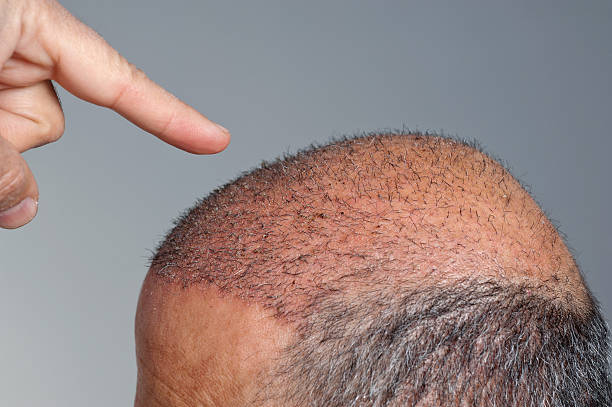Scalp Psoriasis Explained: Symptoms, Causes, and Relief Options
Scalp psoriasis is a chronic autoimmune condition that affects millions of people worldwide. It causes red, scaly patches on the scalp that can be itchy, uncomfortable, and sometimes painful. While there is no cure for scalp psoriasis, various treatment options can help manage symptoms and improve quality of life. This article delves into the symptoms, causes, and relief options for those dealing with scalp psoriasis.

What are the common symptoms of scalp psoriasis?
Scalp psoriasis presents with several distinct symptoms that can range from mild to severe. The most common signs include:
-
Red, inflamed patches on the scalp
-
Silvery-white scales that may flake off
-
Intense itching and burning sensations
-
Dry, cracked skin that may bleed when scratched
-
Hair loss in severe cases (usually temporary)
These symptoms can extend beyond the hairline, affecting the forehead, back of the neck, and behind the ears. It’s important to note that scalp psoriasis can be mistaken for seborrheic dermatitis or dandruff, so a proper diagnosis from a dermatologist is crucial for effective treatment.
What triggers scalp psoriasis flare-ups?
Understanding the triggers of scalp psoriasis can help individuals better manage their condition. Common triggers include:
-
Stress: High levels of stress can exacerbate psoriasis symptoms
-
Cold, dry weather: Winter months often lead to more severe flare-ups
-
Skin injuries: Cuts, scrapes, or sunburns can trigger new psoriasis patches
-
Certain medications: Beta-blockers, lithium, and antimalarial drugs may worsen symptoms
-
Infections: Strep throat and other infections can trigger psoriasis outbreaks
-
Alcohol consumption: Excessive drinking may increase the frequency of flare-ups
-
Smoking: Tobacco use can worsen psoriasis and reduce treatment effectiveness
Identifying personal triggers and making lifestyle adjustments can significantly improve symptom management and reduce the frequency of flare-ups.
How can you manage scalp psoriasis flare-ups at home?
While professional treatment is often necessary, there are several home remedies and lifestyle changes that can help manage scalp psoriasis:
-
Gentle hair care: Use mild, fragrance-free shampoos and avoid harsh hair treatments
-
Moisturize: Apply natural oils like coconut or olive oil to reduce scaling and itching
-
Stress reduction: Practice relaxation techniques such as meditation or yoga
-
Dietary changes: Some individuals find relief by avoiding inflammatory foods
-
Sunlight exposure: Controlled amounts of UV light can help reduce symptoms
-
Scalp massage: Gently massaging the scalp can increase blood flow and reduce scaling
-
Avoid scratching: Use a soft-bristled brush to gently remove scales instead of scratching
It’s important to remember that while these home remedies can provide relief, they should be used in conjunction with medical treatments prescribed by a healthcare professional.
What are the most effective treatment options for scalp psoriasis?
The most effective treatments for scalp psoriasis often involve a combination of approaches tailored to the individual’s needs. Common treatment options include:
-
Topical corticosteroids: These anti-inflammatory medications can reduce redness and itching
-
Vitamin D analogues: Calcipotriene and other vitamin D-based treatments can slow skin cell growth
-
Coal tar: Available in shampoos and ointments, coal tar can help reduce scaling and inflammation
-
Salicylic acid: This ingredient helps soften and remove scales
-
Phototherapy: Controlled exposure to UV light can slow skin cell turnover
-
Systemic medications: For severe cases, oral or injectable medications may be prescribed
-
Biologics: These newer drugs target specific parts of the immune system to reduce inflammation
The effectiveness of these treatments can vary from person to person, and it may take some trial and error to find the best combination for an individual’s specific case.
Which scalp psoriasis treatments are most commonly prescribed by dermatologists?
Dermatologists often prescribe a combination of treatments based on the severity of the condition and the patient’s response to previous therapies. Here’s a comparison of some commonly prescribed treatments:
| Treatment | Form | Mechanism | Typical Usage |
|---|---|---|---|
| Clobetasol | Topical foam, solution, or shampoo | Potent corticosteroid | Short-term use for severe cases |
| Calcipotriene | Topical solution or foam | Vitamin D analogue | Long-term maintenance |
| Tazarotene | Topical gel or cream | Retinoid | Moderate to severe cases |
| Anthralin | Short-contact cream | Reduces skin cell production | Short-term use for stubborn plaques |
| Etanercept | Injectable biologic | TNF inhibitor | Moderate to severe cases |
| Methotrexate | Oral or injectable | Systemic medication | Severe, widespread psoriasis |
Prices, rates, or cost estimates mentioned in this article are based on the latest available information but may change over time. Independent research is advised before making financial decisions.
The choice of treatment depends on various factors, including the severity of symptoms, the patient’s overall health, and potential side effects. Dermatologists often start with topical treatments and progress to systemic or biologic medications if necessary. It’s crucial for patients to work closely with their healthcare provider to find the most effective and appropriate treatment plan.
In conclusion, while scalp psoriasis can be a challenging condition to manage, a variety of treatment options and home remedies are available to help control symptoms and improve quality of life. By understanding the symptoms, triggers, and available treatments, individuals with scalp psoriasis can take proactive steps towards better management of their condition. Regular follow-ups with a dermatologist and adherence to prescribed treatments are key to achieving the best possible outcomes.
This article is for informational purposes only and should not be considered medical advice. Please consult a qualified healthcare professional for personalized guidance and treatment.




